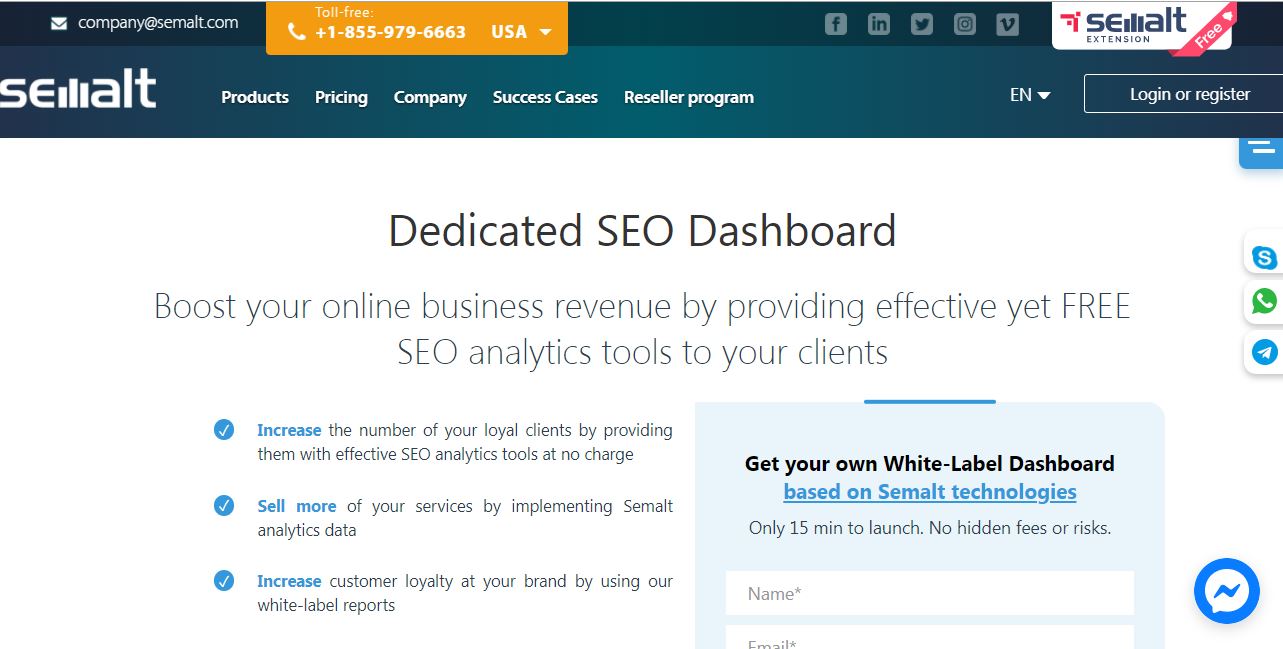Semalt: How To Choose The Best Keywords To Remain One Step Ahead Of The Competition

Higher positions on Google, increased website traffic, more sales and more queries... Positioning effects can take your business to the next level. However, it all starts with keywords, i.e. queries that users type into the search engine. How do you choose the best phrases to stay ahead of the competition? You'll need tools, without which further planning is just reading tea leaves. Find out how quickly you can find keywords to power your business!
Why keyword planning remains a key factor in positioning?
Keywords are a few words or phrases that we type into Google when we are looking for information on a particular topic. Whether we are looking for a plumber, data on the Large Hadron Collider, or a cheesecake recipe, we will start by selecting these few words in the search engine. The user's subsequent path on the Internet starts with them. The next step is to click on one of the results that Google displays on the first page.
All keywords can be divided into several groups depending on the user's intention, the length or the relations between the individual phrases. For the purposes of this article, however, it is sufficient to distinguish the following four types:
- Brand - containing the name of a specific brand, for example, "Nike shoes".
- Generic - general phrases of one or two words, such as "sports shoes".
- Long-tail keywords - phrases containing more words. Usually used to find specific information or products with specific characteristics.
- Geo-targeted phrases - keywords useful in local positioning that contain the name of a city or even a specific neighborhood in a given city.
By typing the general phrase "sports shoes" into the search engine, Google will display suggestions, including both a long tail ("black women's sports shoes") and branded queries ("Adidas sports shoes"). Each of these phrases will produce a different search result to match the additional words around the generic keyword.
Keyword planning tools
In the list below, I have tried to include a free tool that can perform basic functions in the keyword research process. It is a very limited tool in planning SEO activities. On the other hand, the list also includes a paid tool, which is very useful for searching for keyword suggestions, and for reviewing current search engine trends. In addition, this tool includes a solution that will give you good ideas for blog posts in an online shop or on a corporate website, as an extension of the ideas.
1. Keyword Planner
The Keyword Planner is a free tool prepared by Google, through which you can get suggestions for new phrases and relevant statistics. Ultimately, it is used to plan advertising campaigns in Google Ads, but it can also be used for basic positioning purposes. On the other hand, Keyword Planner is a very limited SEO tool when it comes to keyword planning. Because when using it, you cannot have all the statistics that would allow you to know the relevance of each keyword. Moreover, using this tool, you can not know the competitive keywords and their trends.
On the other hand, if you want to use this tool to get a keyword suggestion, simply enter the base word for which the planner will display other suggestions. You can also use a filter in the form of a domain, and also select a special checkbox if you want to get branded keywords from the list.
2. The Dedicated SEO Dashboard

There is no doubt that using keywords is an effective way to reach a wider target audience, increase web traffic and place your website in the top position of internet search engines. That's why keyword research related to the business you run is a pretty crucial activity for a web manager, perhaps including you. So how do you make the keyword research process happen quickly and on target? Semalt has an SEO tool that has a great keyword research feature that you can use. This tool is called the Dedicated SEO Dashboard. For your information, this tool has a 14-day free trial that you can use to see how well it performs in terms of keyword planning. In the following, we will see how to use the Dedicated SEO Dashboard.
How to use the Dedicated SEO Dashboard for keyword planning?
The first and foremost step before deciding to use the SEO Dedicated Dashboard is to know its benefits. Then, think on all sides if this tool is really necessary for your company's web development.
By launching information from the official support page of this tool, you can have several important advantages, including:
- Provide keyword suggestions related to the right business, from products to services.
- Organize keywords according to categories related to the user's brand.
- Display the estimated number of searches for the searched keyword. This calculation is presented in monthly data.
In addition to its ability to generate keywords, this tool has several other advantages namely:
- Knowing the competitors in the right niche and their SEO strategy.
- Conducting competitive analysis.
- Having a thorough audit of the site.
- Checking the speed of the site and have suggestions to improve the loading time.
- Checking the uniqueness of the site.
- Creating a schedule for the distribution of reports.
- Benefiting from a partnership program to be a reseller.
To learn more, you can dive into its data-driven tool features at demo.semalt.com.
So, do you then need this tool? If so, now is the time to create your account and start your free trial.
So, how do you use the keyword planning feature of the Dedicated SEO Dashboard?
Create a keyword plan
After successfully registering an account, you can immediately start using the SEO Dedicated Dashboard with its powerful features. Each feature offers different information so that your search results can be more comprehensive.
Discover new keywords
The first way to run the feature is to enter keywords (maximum 10 words or expressions) that may be related to your business. Then click on "Get result" to see the results of the analysis.
In the Discover New Keywords analysis report, you will find information in the form of the lowest and highest prices offered, the average number of searches for each keyword per month, and the suggested keywords that are still related.
If you have no idea which keywords to check, then don't worry!
Discovering new keywords also offers another step, which is to link your company's web address. After entering the web address and pressing the "Get Result" button, this tool will automatically analyze the keyword recommendations.
Get search volume and forecasts
Additional information on the keyword search results obtained from this feature include the following:
- the number of clicks;
- the number of views/impressions;
- the costs based on each click;
- the position of the ad in search engines;
- CTR (click-through rate).
Seeing the detailed information for each keyword, it is not surprising that efforts to maximize the use of keywords for commercial websites are becoming increasingly easy.
How to assess whether it is worth investing in a given keyword?
Each of the phrases we get from Google suggestions or keyword planning tools has two basic characteristics. Based on them we can determine whether it is worth using them in our positioning strategy, or whether we should focus on other phrases. The main aspects we should pay attention to when choosing are:
- Searchability - the average monthly number of searches for a given keyword.
- Competitiveness - the so-called difficulty of a given key phrase, most often determined by the number of results in the search engine. In addition, the websites that appear in the first position for a given query.
The Google search engine for the phrase "sports shoes" yields more than 76 million results, which can prove its high competitiveness. If we look at the subsequent results on the first page of the organic results, we will encounter online shops of big brands. In this case, the fight for the top positions will not only require a considerable promotion budget, but also a website of an appropriate size and range. It is worth considering whether it might be a better solution to focus on long-tail phrases, which are generally less searchable, but then we will have to compete with a smaller number of pages.
In addition, attention should also be paid to the results profile, i.e. the type of pages displayed on Google for our key phrase. In recent years, the importance of the user's intentions and expectations, which the search engine tries to match with the results, has increased.
Other things to check before investing in a keyword
When checking a given keyword, make sure the results profile matches the page you want to rank for. It often seems to us that a given phrase may be entered by people interested in a purchase or service, but then we see articles and guides in the search results.
Another aspect of the results profile is the additional elements that are scattered around the free organic results. These include not only ads, but also movies, graphics, and a knowledge graph. With each additional element, there is less and less space on the first page of Google, and the results themselves are not necessarily ten. It is quite common for eight or nine sites to be presented. For many queries, the first view is reserved for paid Google Ads results.
For "learn English", in addition to the section with YouTube videos, we will also receive a Google map in the results, and for phrases related to tourism, we will often see a special widget with accommodation offers.
Summary
Keyword planning requires not only knowledge, but also a lot of work related to the selection of related phrases. Using the tool mentioned above, you can complete a collection of keywords that are relevant to your business. In many industries, however, there is a constant battle on the first pages of the search engines, and for many phrases, even high positions will not increase the number of visits to the website. In order to choose the right key phrases that will guarantee you real results and website traffic, it is worthwhile to seek the help of SEO specialists.